Politico-Legal Environment Analysis: Trade War Effects on Economy
VerifiedAdded on 2023/06/10
|5
|698
|146
Report
AI Summary
This report examines the politico-legal environment, specifically focusing on the impact of the US-China trade war on the American economy. The analysis, based on a CNN article, highlights three key concerns for business executives: lower stock prices, decreased consumer confidence, and increased tariffs on exports. The report discusses how these issues are interconnected, explaining how President Trump's trade policies have created uncertainty, leading to reduced consumer spending and lower stock valuations. Furthermore, it details the implications of retaliatory tariffs imposed by China, which threaten to make American exports less competitive in the global market. The report references sources to support its claims, providing a comprehensive overview of the economic consequences of trade tensions and their effects on the business environment.
1 out of 5
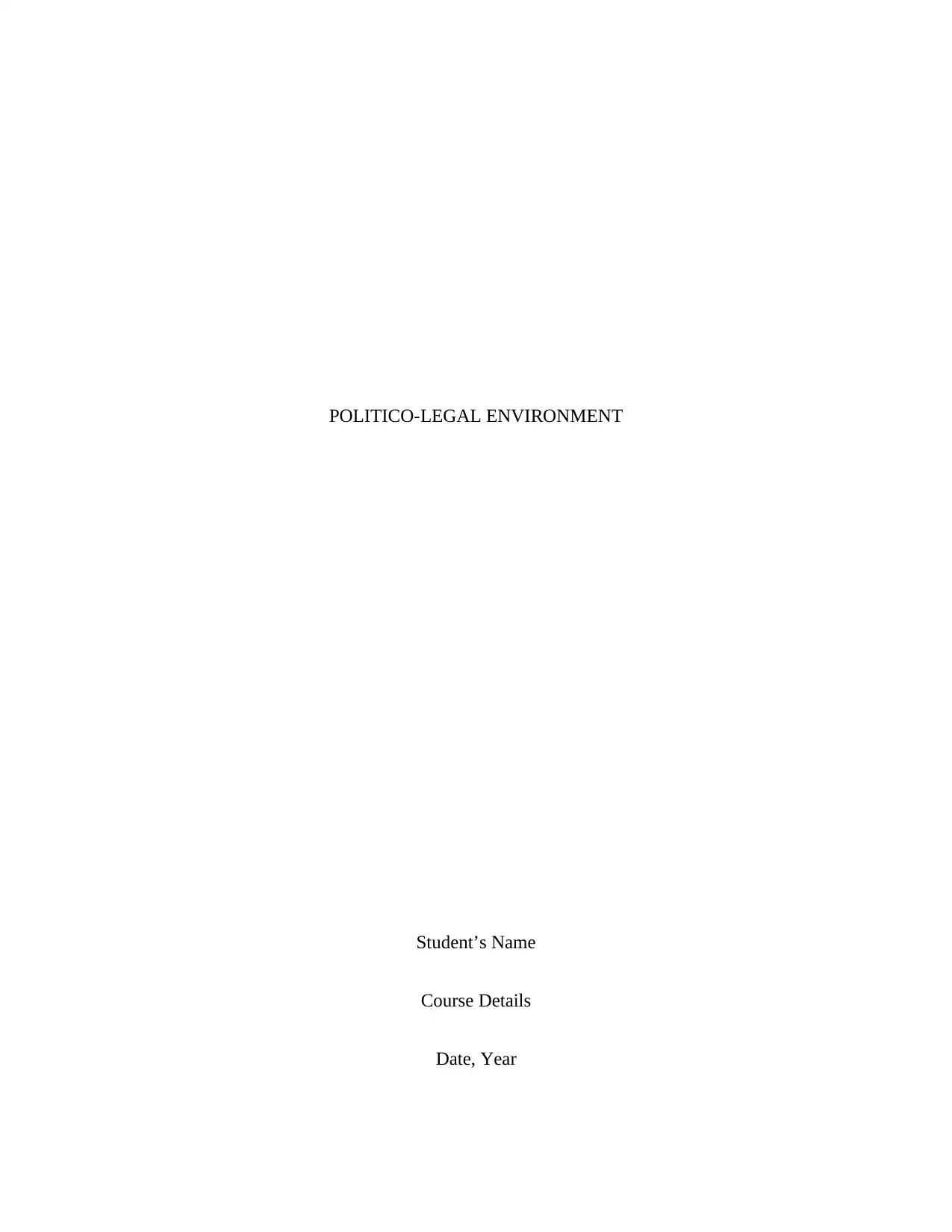
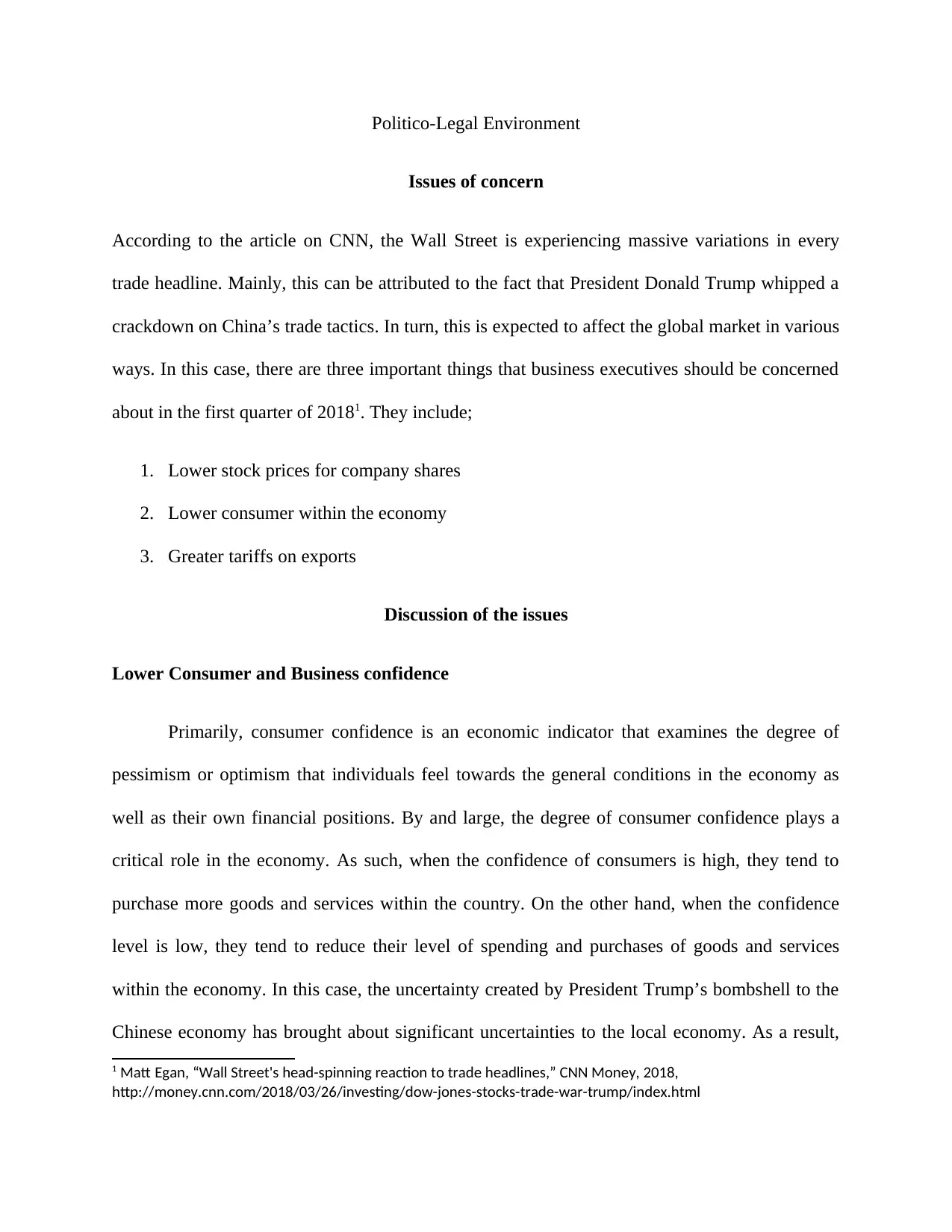
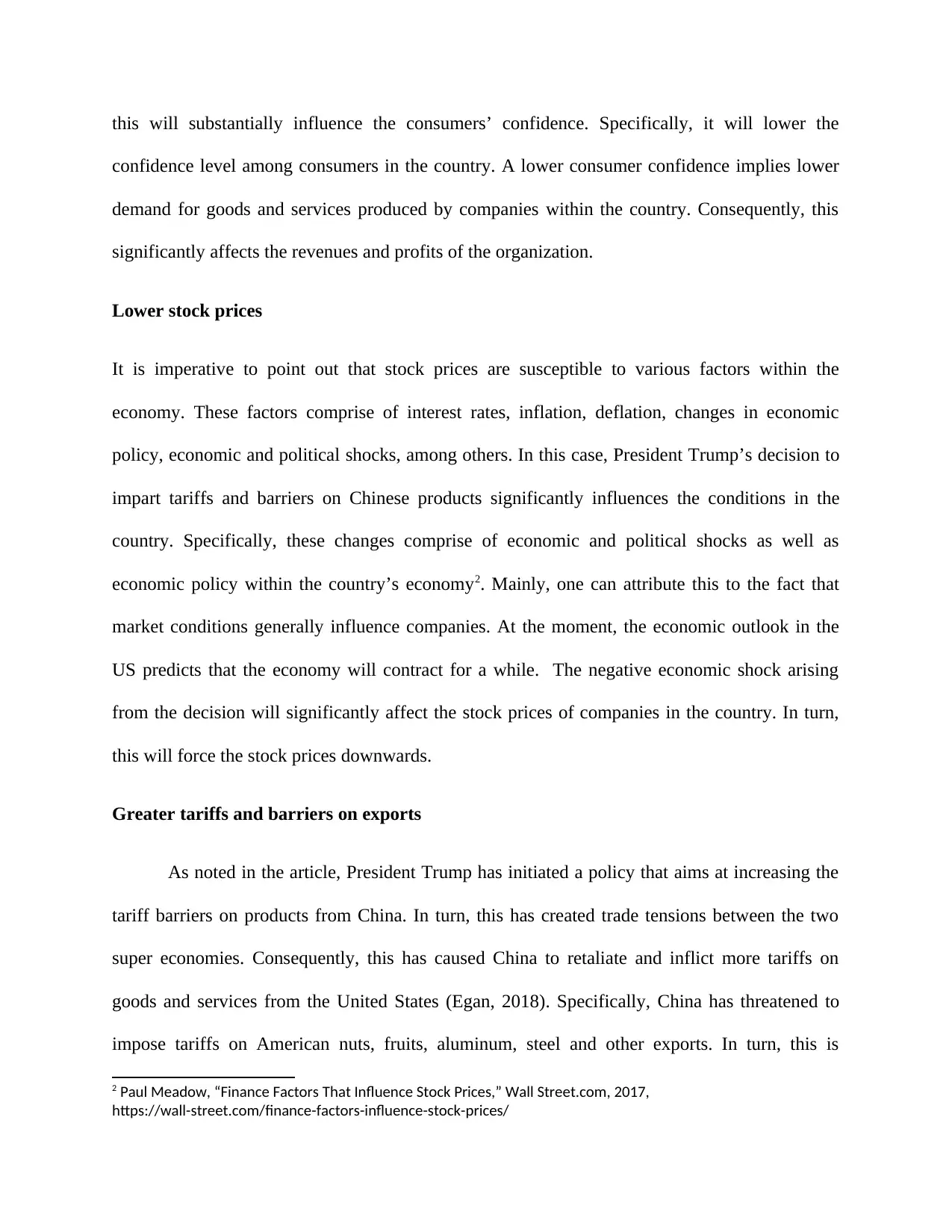

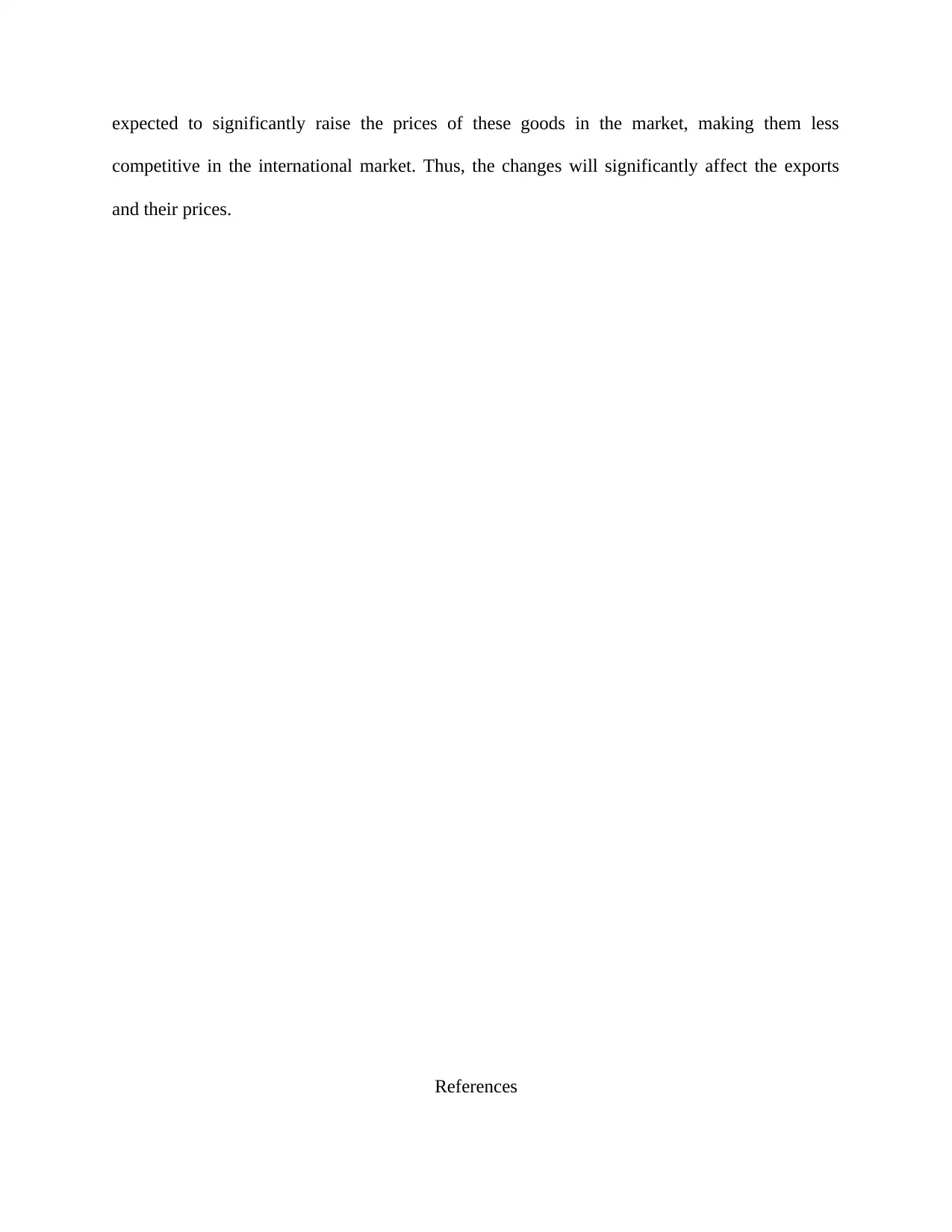
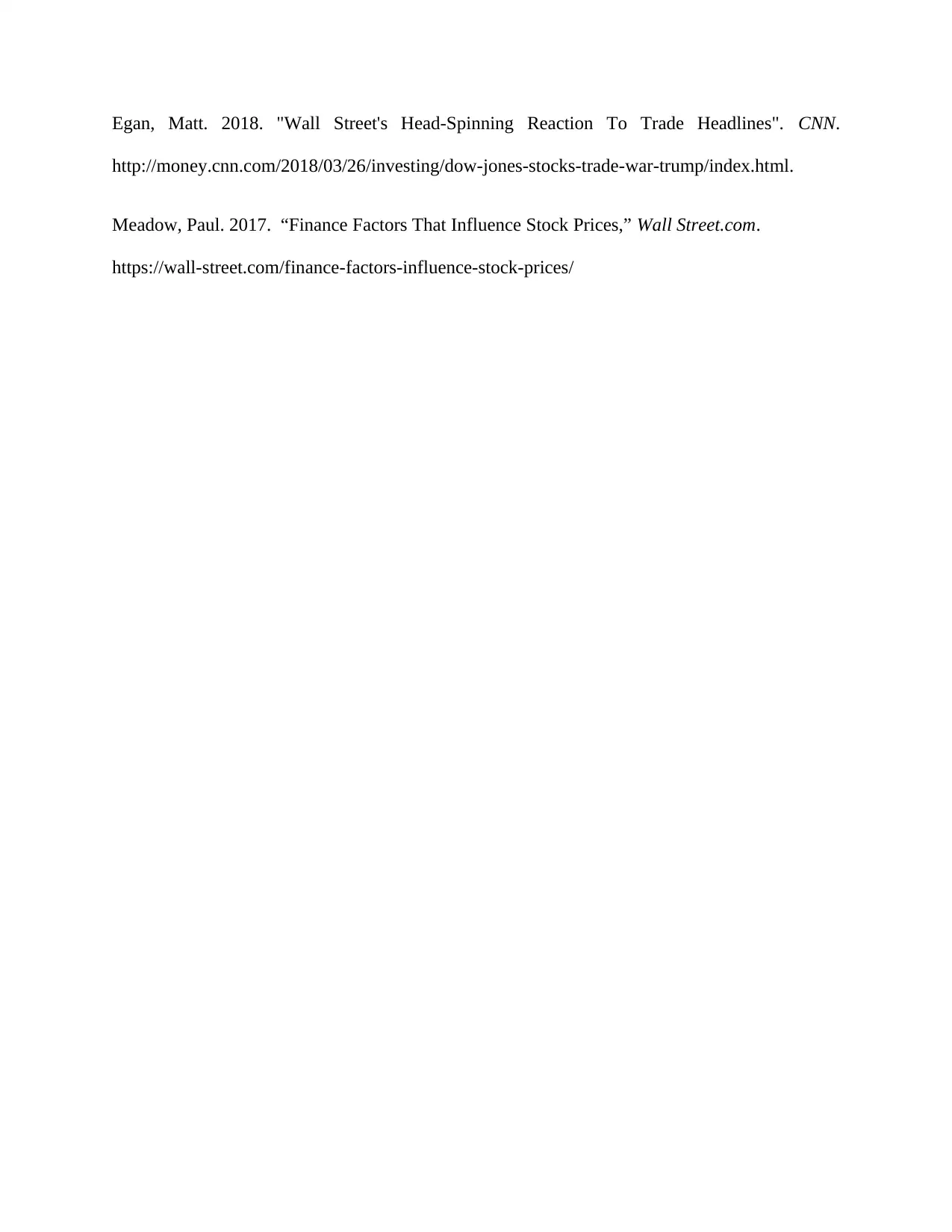






![[object Object]](/_next/static/media/star-bottom.7253800d.svg)